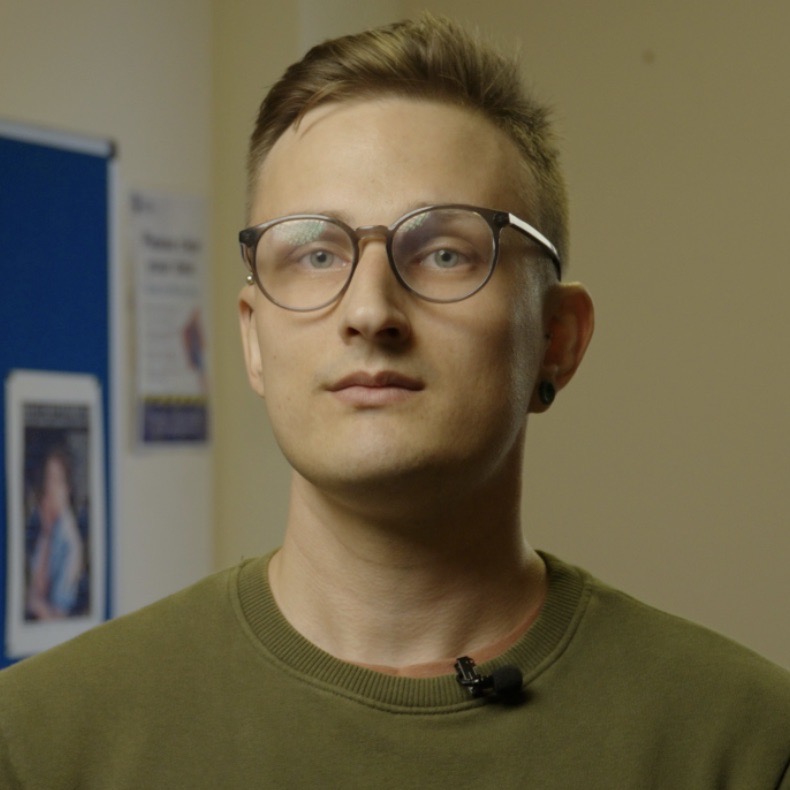Delivering NBIC’s Research Strategy

Dr Callum Highmore
Callum’s PhD focused on foodborne pathogens in the viable but nonculturable state. During his NBIC Fellowship, he will be applying Raman spectroscopy techniques for the detection and characterisation of biofilm in a range of samples spanning food and healthcare sectors, with the intent of continuing his research into nonculturable bacterial states.
This research will be carried out in collaboration with the Faculties of Engineering and Physical Sciences, and Medicine, and in the first instance will assess the clinical utility of Raman spectroscopy as a diagnostic tool in Cystic Fibrosis.

Dr Gavin Melaugh
Gavin is a NBIC Fellow in the Physics Department at the University of Edinburgh working with Professor Cait MacPhee and Rosalind Allen. Gavin studied Chemistry at Queen’s University Belfast (QUB), moving to the Physics department to do his PhD in molecular modelling and computer simulations of porous liquids.
This work led to the design, synthesis, and characterisation of the first ever liquids of this kind. At Edinburgh, Gavin uses a combination of experiments and computational simulations to investigate aggregation and collective phenomena in biofilm-forming bacteria such as the opportunistic pathogen Pseudomonas aeruginosa and the wastewater treatment bacteria Comamomas denitrificans.

Dr Joe Parker
Joe has nearly two decades’ experience understanding evolutionary and ecological relationships between organisms using DNA sequence data, spanning everything from viruses to whales and oak trees. An EAP early adopter of portable nanopore sequencing technology using the USB-connected MinION device, he is an expert in field-based DNA sequencing and analyses.
At NBIC, Joe applies rapid, portable real-time data collection methods and develops cloud-based, big-data analytics to produce actionable insights into biofilm species composition. He is also interested in using this data to pose deeper questions about biofilm evolutionary processes including horizontal gene transfer and antimicrobial resistance. He is also interested in the use of mechatronics, automation, architecture and service design in scaling-up molecular assays, having spent the pandemic designing and commissioning highly automated molecular labs which processed over a million Covid-19 tests.

Dr Peng Bao
Dr Peng has a multidisciplinary background. He earned his PhD in experimental condensed matter physics, then worked in the field of semiconductor physics for three years (including nanofabrication, characterization, and computer simulation of thin-film transistors). He has also worked in the field of microwave device engineering for three years (improving and characterization of tunable microwave devices), and in the field of biophysics for ten years (lipid membranes and membrane proteins, LC crystal droplet biosensors, and microfluidics).
Peng joined NBIC in May 2021. He is working in Professor Rasmita Raval’s group in the Surface Science Research Centre at the University of Liverpool. His current research interests include biosensors, synthetic cells, microfluidics, and especially on antimicrobial surfaces.

Dr Ryan Morris
Ryan holds degrees from Boston University (B.A. Physics) and King’s College London (MSc. Theoretical Physics). He completed his PhD in mechanisms of protein self-assembly at the University of Edinburgh in 2013. Since then, he’s held a postdoctoral position at Edinburgh where he’s studied both molecular components of biofilms, as well as investigating population-level dynamics of bacteria and biofilms.
He has a strong interest in collective behaviours of bacteria and applying microfluidic technologies to better understand microbial life in spatially complex and dynamic environments.

Brogan Richards
Before starting his PhD, Brogan worked for several years as an associate practitioner of microbiology for the NHS working on diagnosis and antimicrobial sensitivity testing of patient samples. He has a PhD in microbiology where he developed complex polymicrobial biofilms in the context of cystic fibrosis with a focus on understanding their increased mechanisms of resistance/tolerance. As an NBIC Fellow in the School of Life Sciences at the University of Nottingham, Brogan is continuing and expanding upon this work to further understand complex polymicrobial biofilms and utilise an extensive range of techniques. Whilst elucidating these interactions, it should hopefully provide an increased understanding of the complex interactions between multi-species biofilms, as well as allow for the development of potential therapeutic options.
Meet Our Doctoral Training Centre Students
Our Doctoral Training Centre provides the synergy, critical mass, and the breadth and depth required to deliver an ambitious training programme in biofilm science, engineering and technology.
